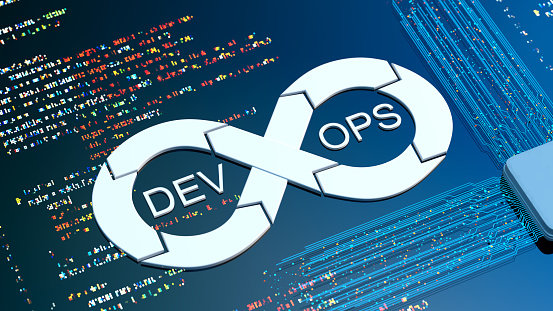The emergence of cloud computing has transformed the way organizations design, develop, and deploy software applications. Cloud-native application development has become increasingly popular as it enables organizations to leverage the benefits of the cloud in building and deploying scalable and resilient applications. However, building cloud-native applications requires a new approach to software development that emphasizes automation, collaboration, and continuous delivery. This is where DevOps comes into play.
DevOps is a set of practices that combines software development (Dev) and IT operations (Ops) to streamline the software development lifecycle. DevOps is all about breaking down silos between development and operations teams, enabling them to work together seamlessly. By fostering a culture of collaboration and automation, DevOps can help organizations build, test, and deploy cloud-native applications with greater speed, efficiency, and reliability.
In this article, we will explore the role of DevOps in cloud-native application development, including how it enables organizations to build and deploy applications faster, with fewer errors, and with better scalability and resilience.
Real-time Content Analysis
As I write this article, the Real-time Content Analysis feature is providing me with valuable insights and feedback to improve the quality of my content. The tool is monitoring my writing and highlighting potential issues related to grammar, spelling, style, and readability. This feature is a testament to the power of automation in improving the quality and efficiency of content creation.
Automation
Automation is an essential principle of DevOps and plays a pivotal role in the development of cloud-native applications. It enables organizations to build, test, and deploy applications faster and with more consistency. By automating repetitive tasks like testing, deployment, and monitoring, DevOps services teams can reduce errors, enhance efficiency, and focus on more strategic responsibilities.
IAC enables organizations to automate the provisioning and configuration of infrastructure, making it simpler to manage and scale cloud-native applications. Automation also allows organizations to implement CI/CD pipelines, facilitating faster and more reliable software delivery.
Collaboration
Collaboration is another key principle of DevOps, and it is essential for cloud-native application development. Building cloud-native applications requires cross-functional teams to work together seamlessly, including developers, operations teams, security teams, and business stakeholders. By breaking down silos between teams, DevOps enables faster feedback loops, better communication, and more effective problem-solving.
For example, developers can work closely with operations teams to design applications that are easier to deploy and manage. Security teams can provide guidance on how to build applications that are more secure and resilient. Business stakeholders can provide feedback on how to design applications that meet their needs and deliver value to customers.
Continuous Delivery
By automating the software delivery process, DevOps teams can deploy updates to production faster, enabling faster time-to-market and better customer experiences.
Continuous integration (CI) pipelines are an effective approach for organizations to automate the build and testing of software updates. By adopting CI pipelines, organizations can enhance their software development processes, improve software quality, and provide better experiences to their end-users.
Read – More About Business News
Scalability and Resilience
Cloud-native applications are designed to be scalable and resilient, enabling them to handle high levels of traffic and maintain availability even in the face of failures. DevOps plays a critical role in achieving these goals by enabling organizations to design and deploy applications that are highly available, fault-tolerant, and scalable.
For example, DevOps teams can use automation tools to manage the scaling of cloud
conclusion
DevOps plays a vital role in the development of cloud-native applications. By bringing together development and operations teams, DevOps enables organizations to develop, deploy, and manage cloud-native applications quickly and efficiently. With the increased adoption of cloud consulting, DevOps has become even more critical as it enables organizations to take advantage of the benefits of the cloud, such as scalability, agility, and cost-effectiveness.
DevOps helps teams to automate processes, streamline workflows, and improve collaboration, leading to faster and more frequent software releases. With DevOps practices in place, teams can deliver new features and updates to their cloud-native applications quickly, responding to changing customer needs and market demands.
Moreover, DevOps provides organizations with the ability to monitor and manage their cloud-native applications continuously, ensuring that they remain available, performant, and secure. With DevOps, teams can identify and resolve issues quickly, minimizing downtime and improving user experience.
In summary, the role of DevOps in cloud-native application development is critical to the success of modern software development. By adopting DevOps practices, organizations can develop and manage cloud-native applications efficiently, delivering value to their customers and remaining competitive in today’s fast-paced digital world.




